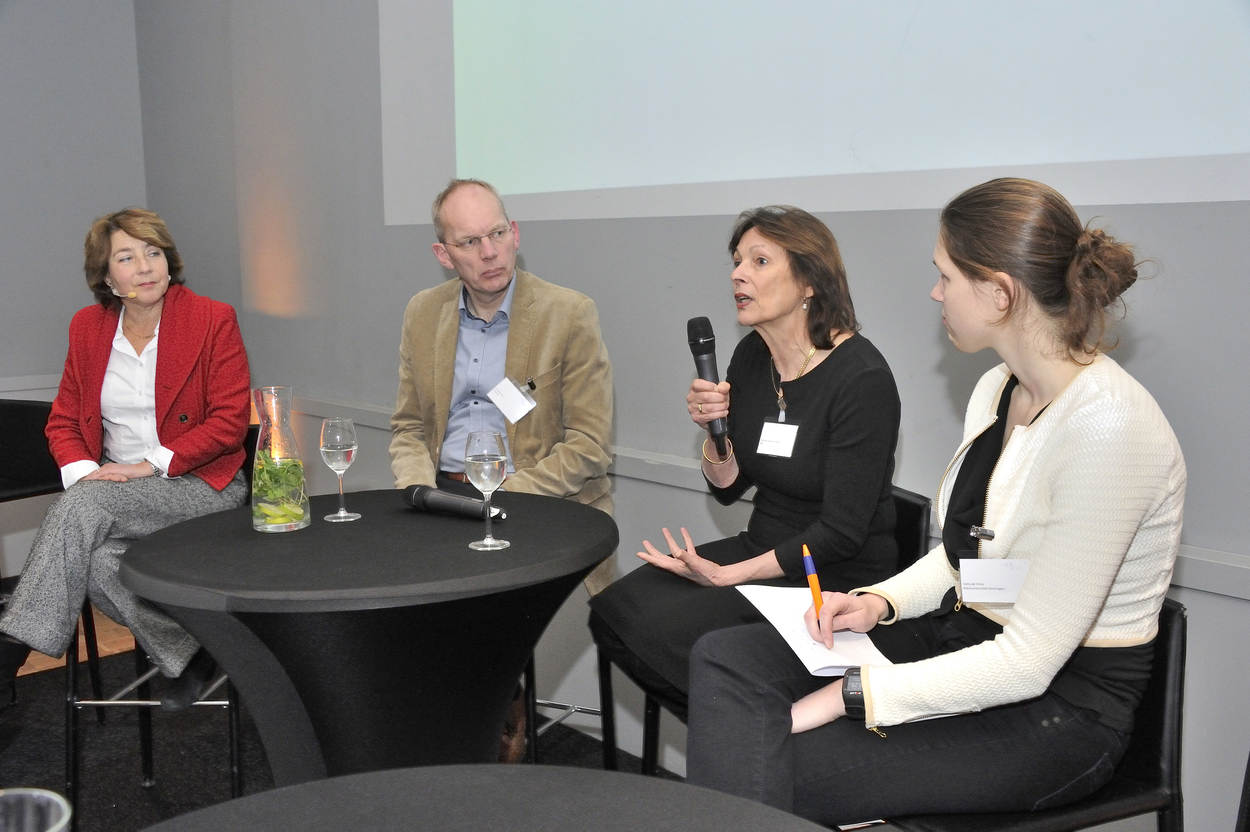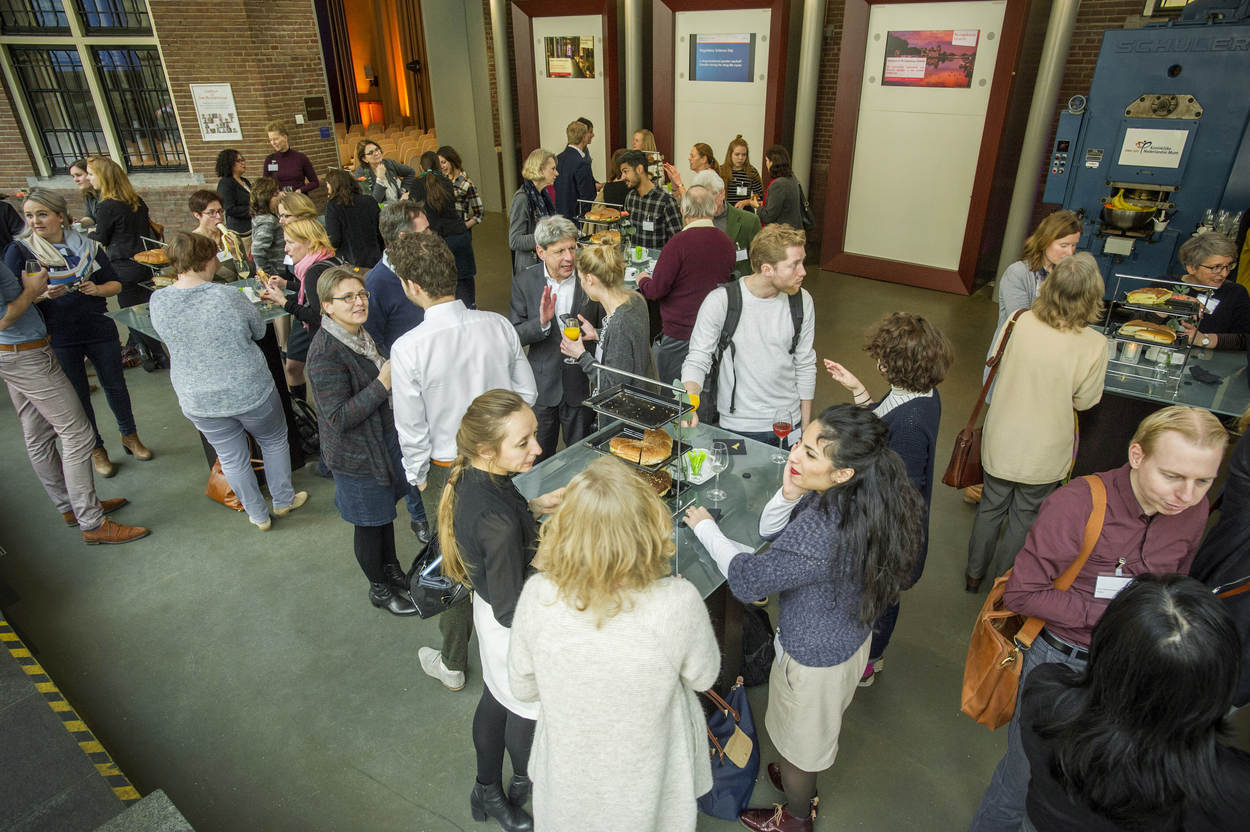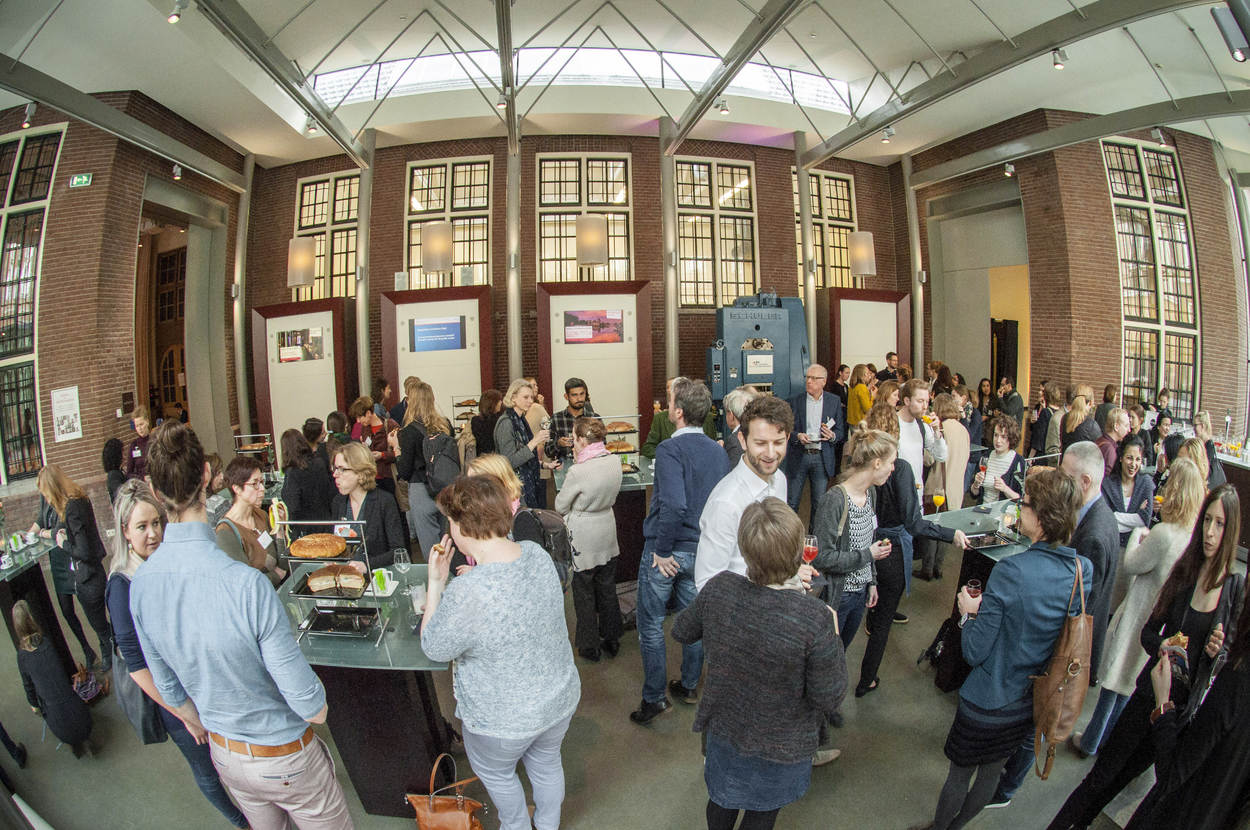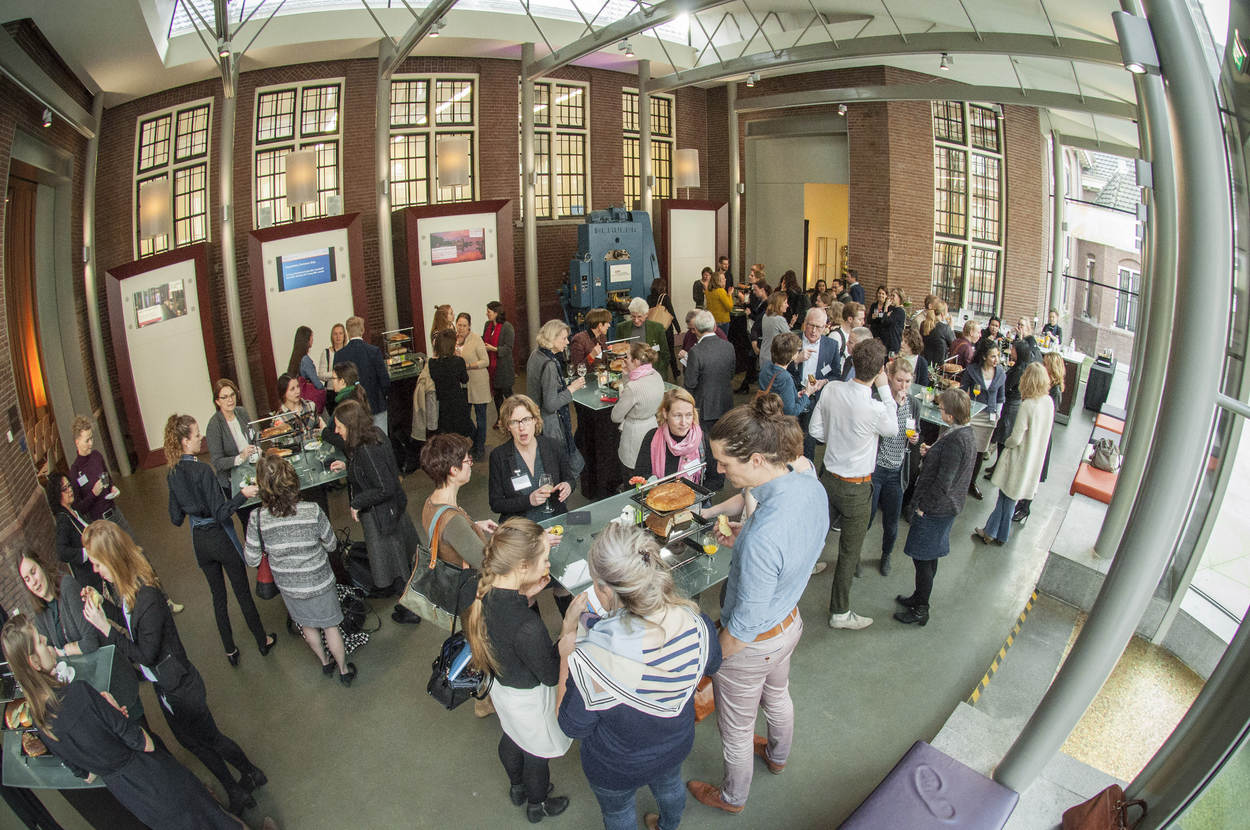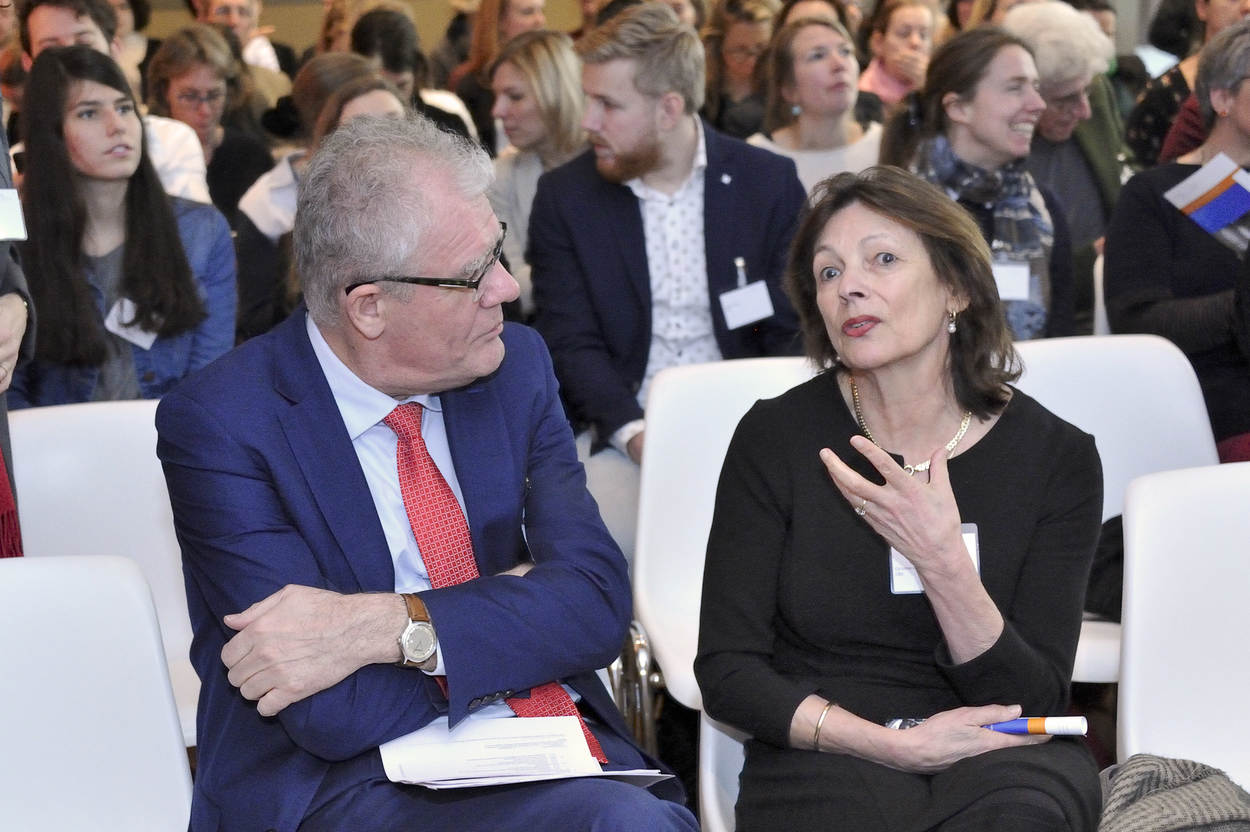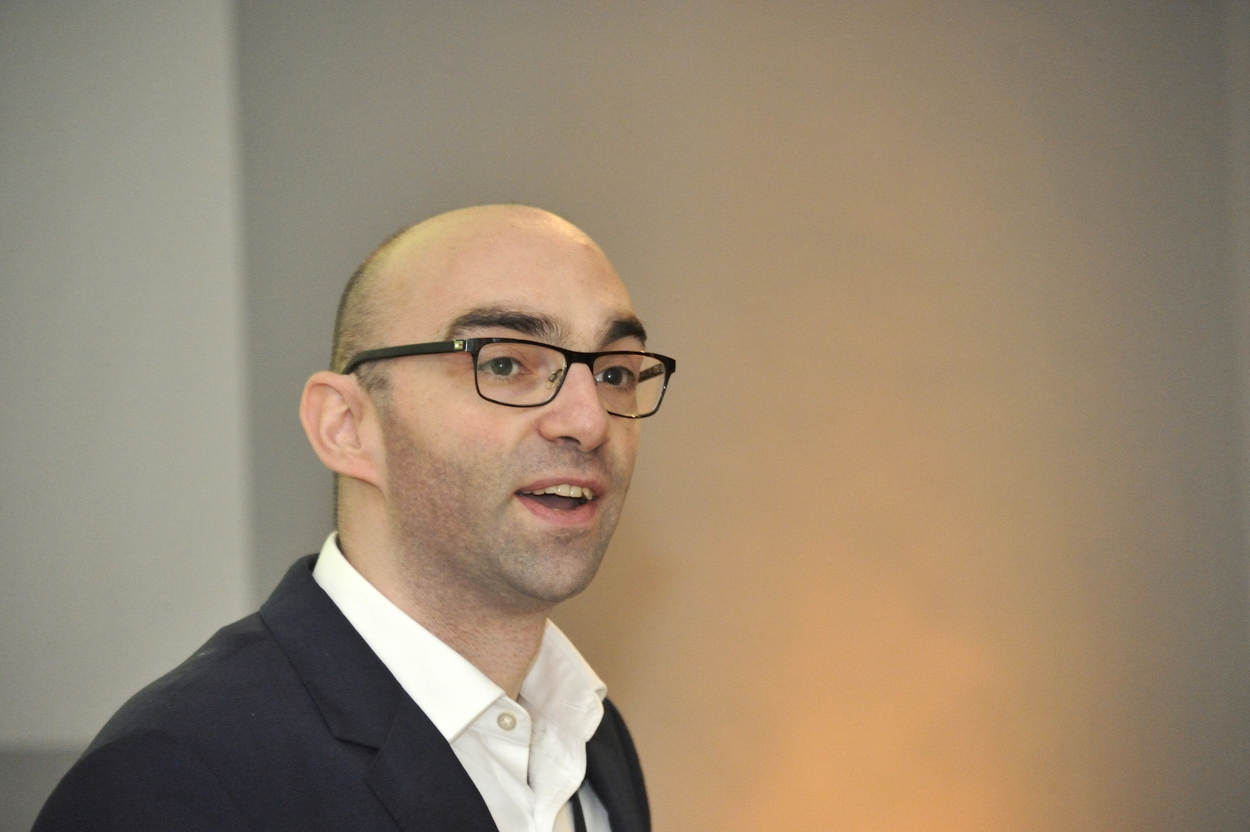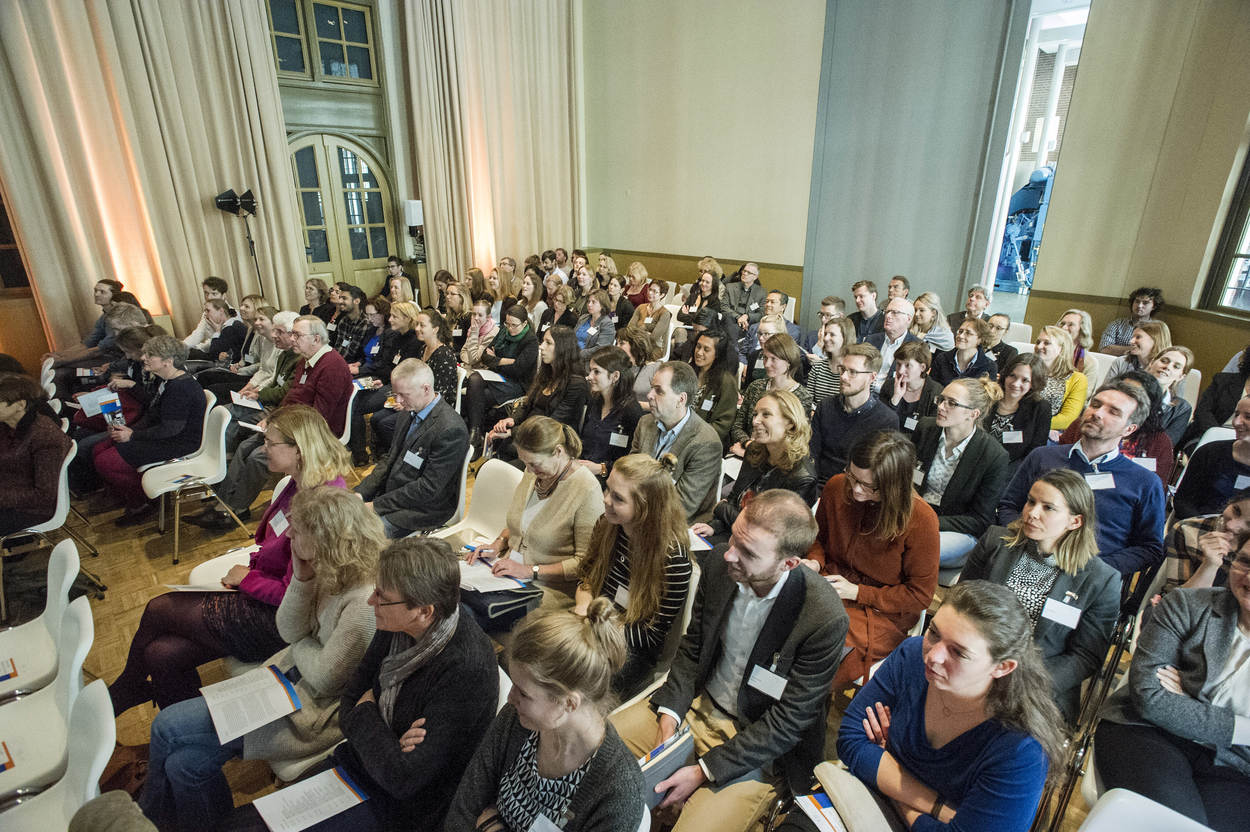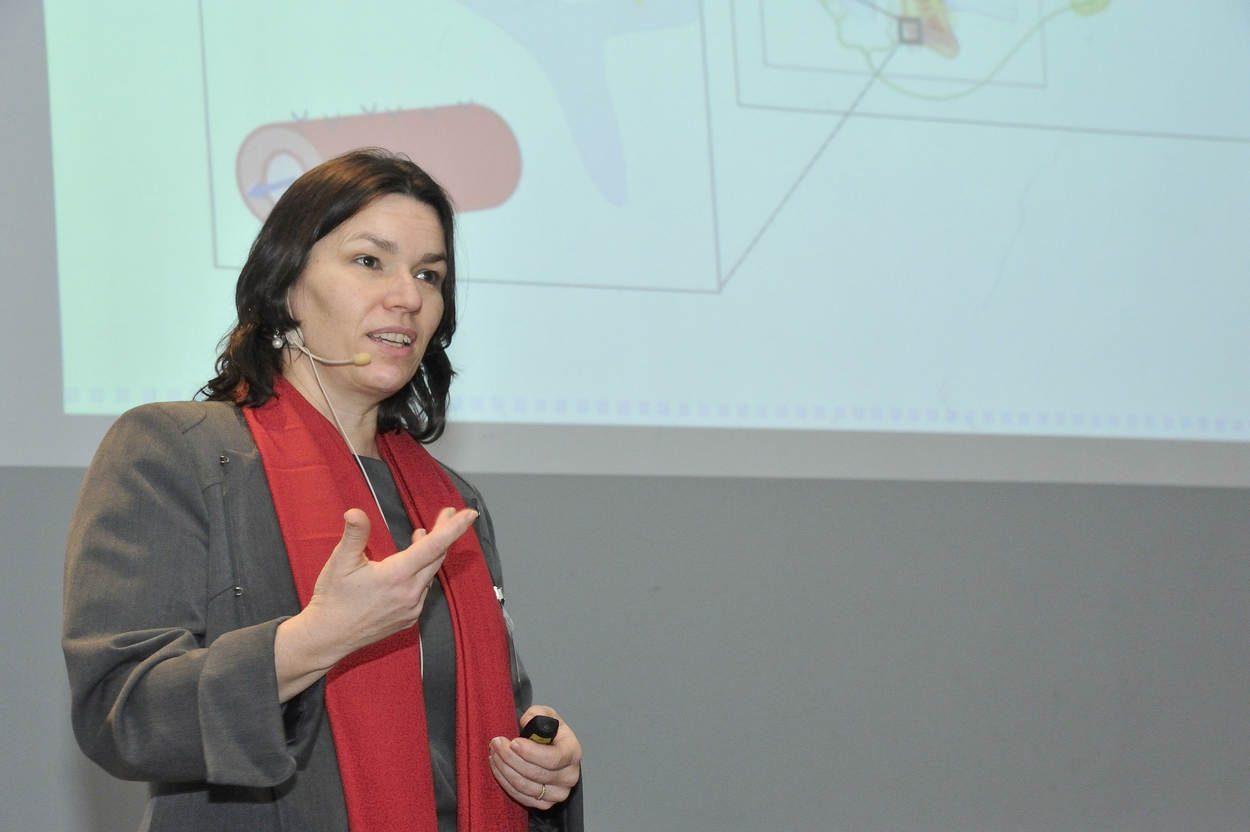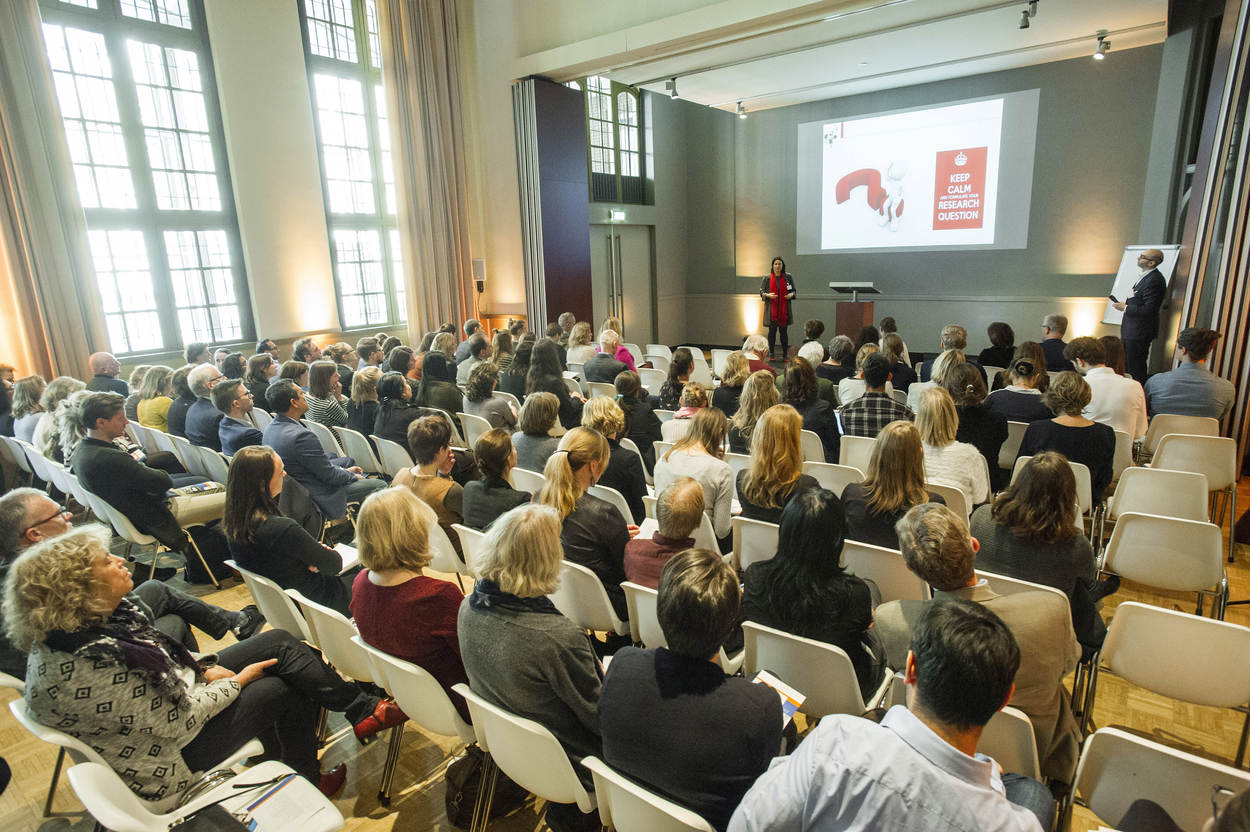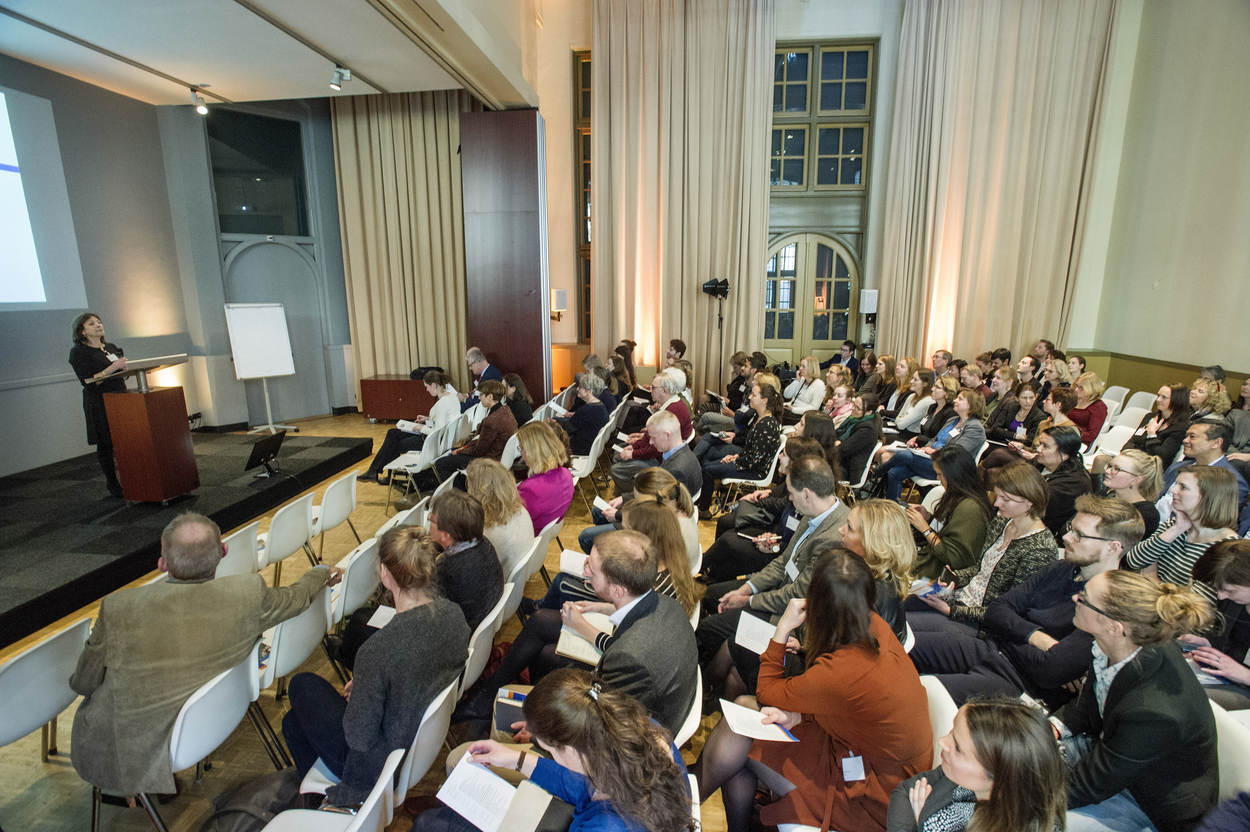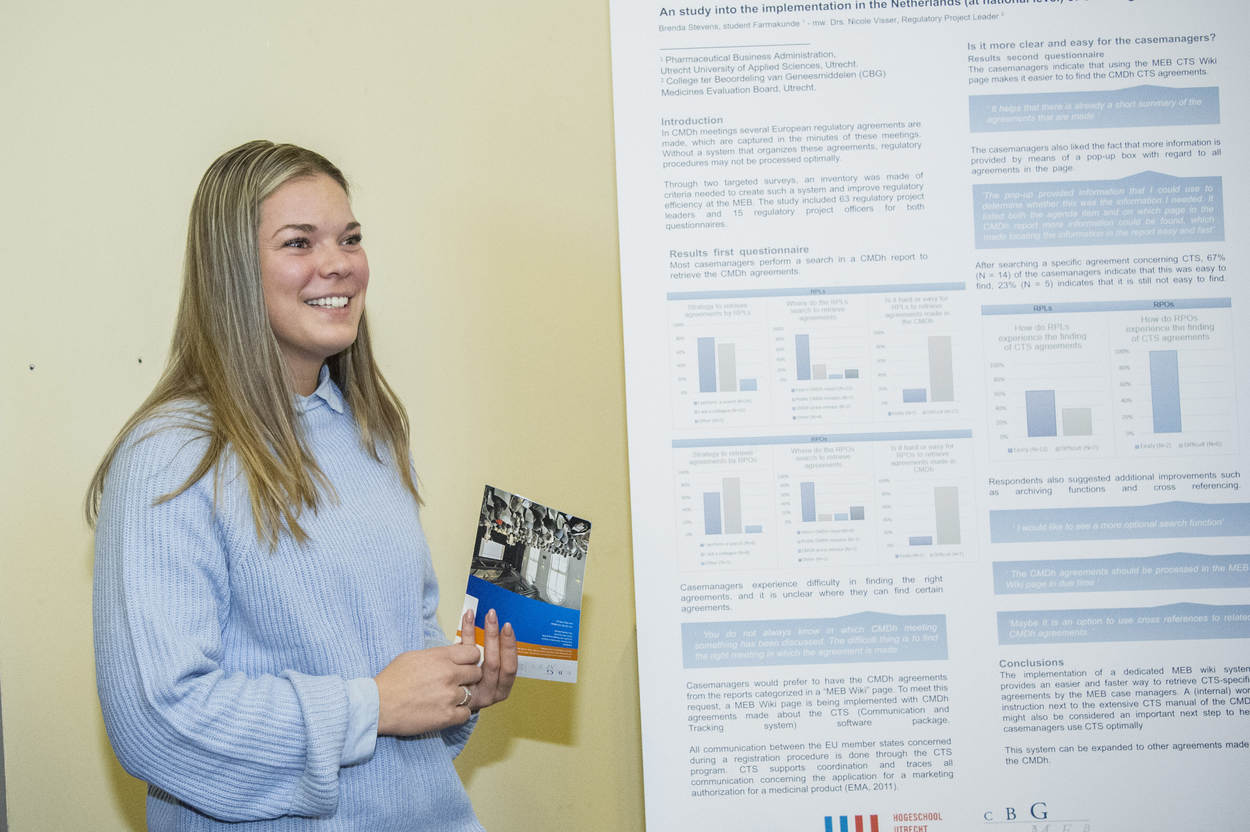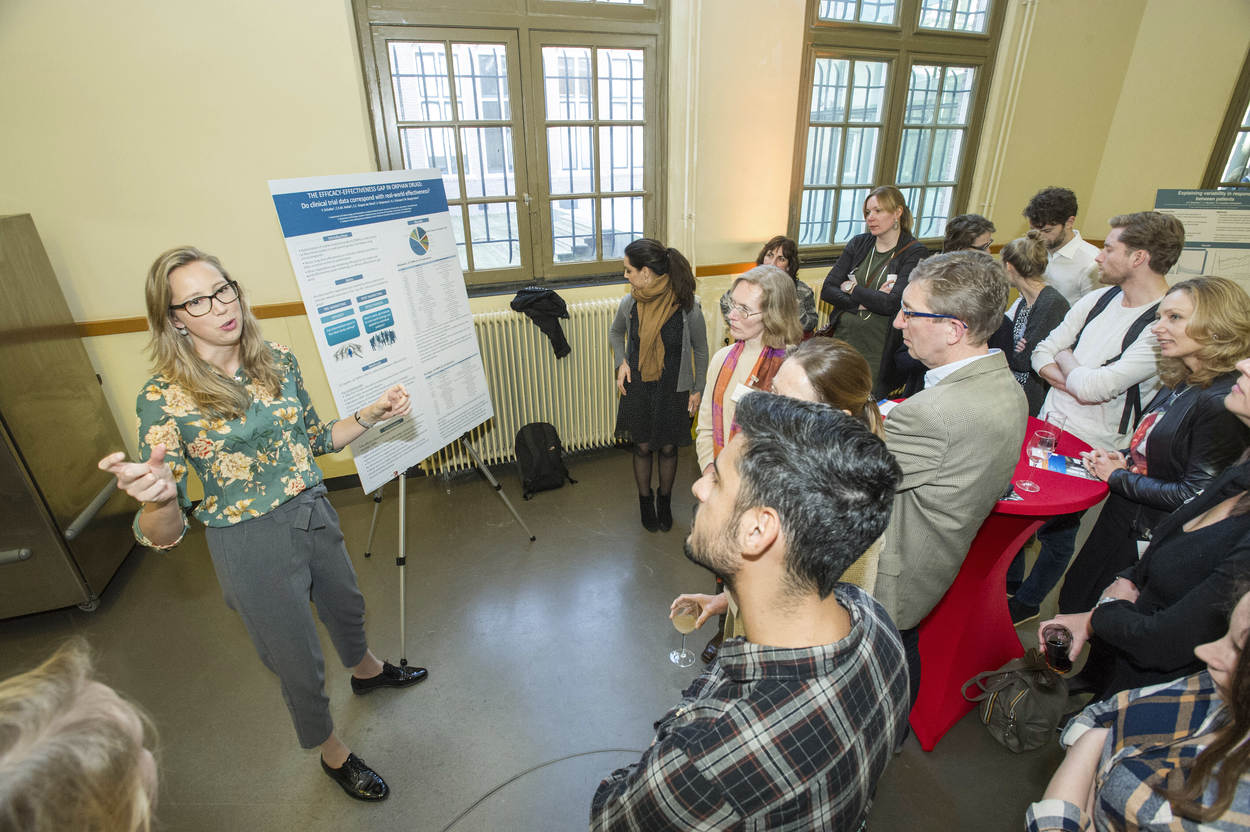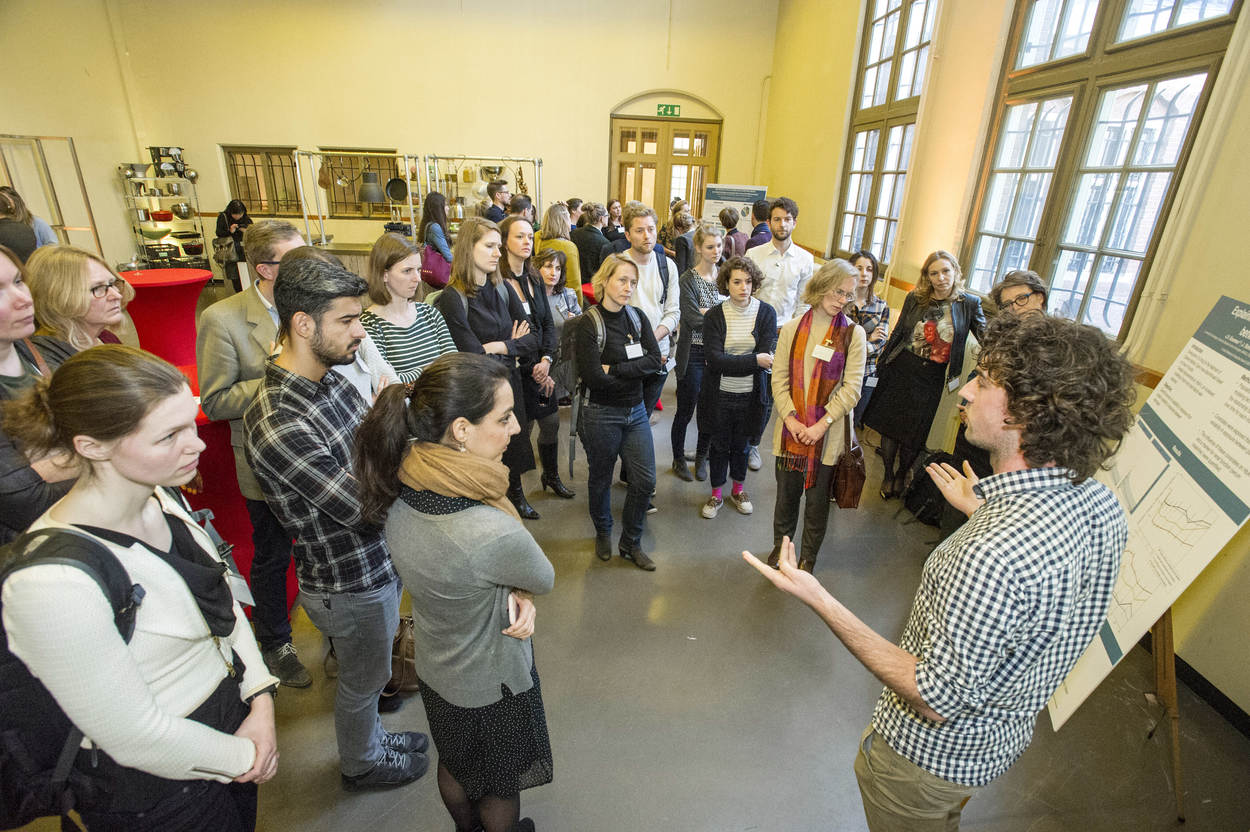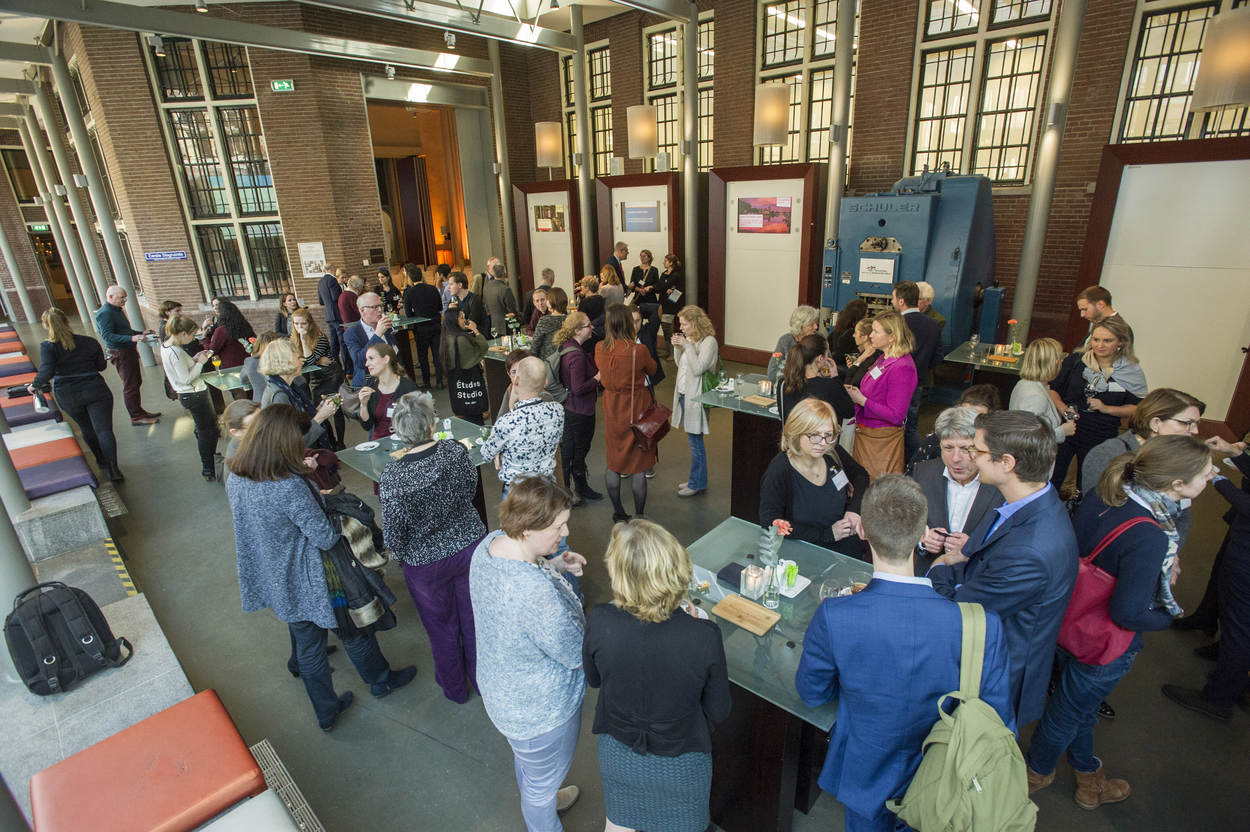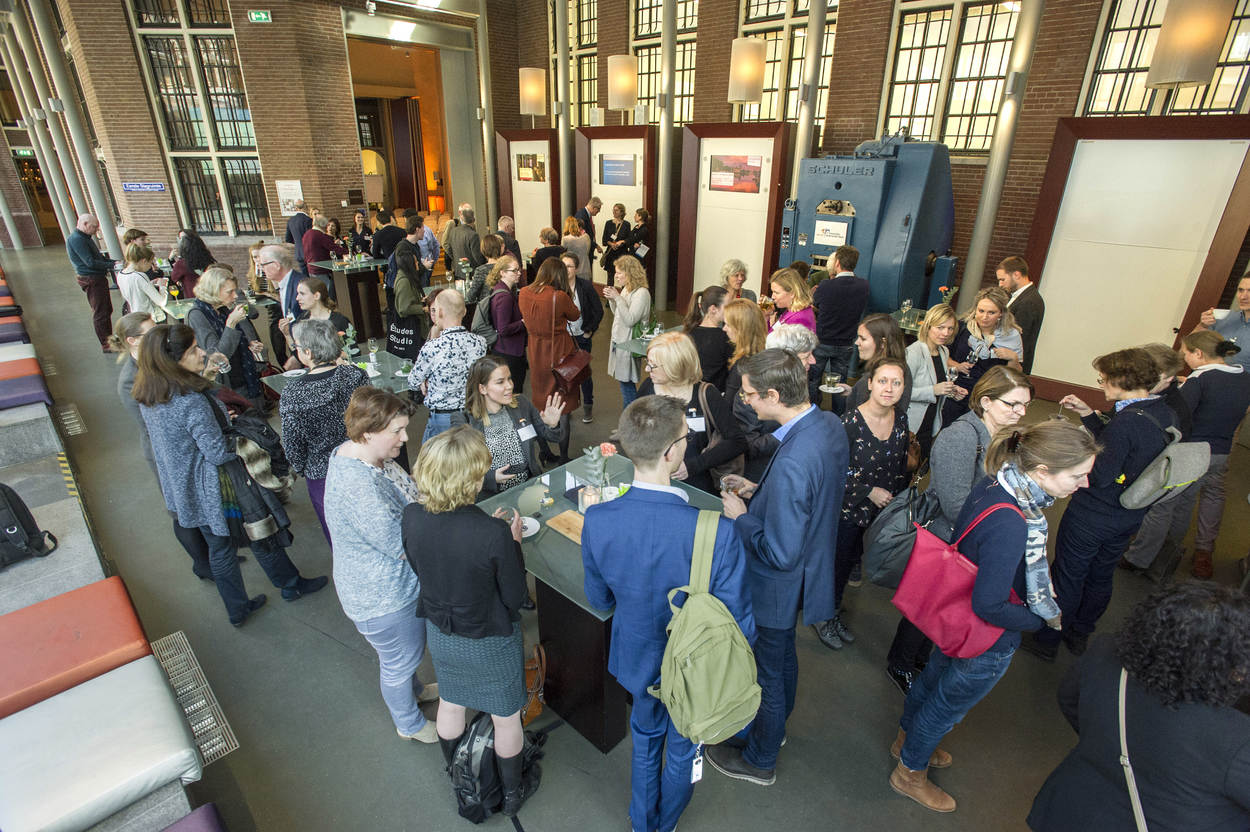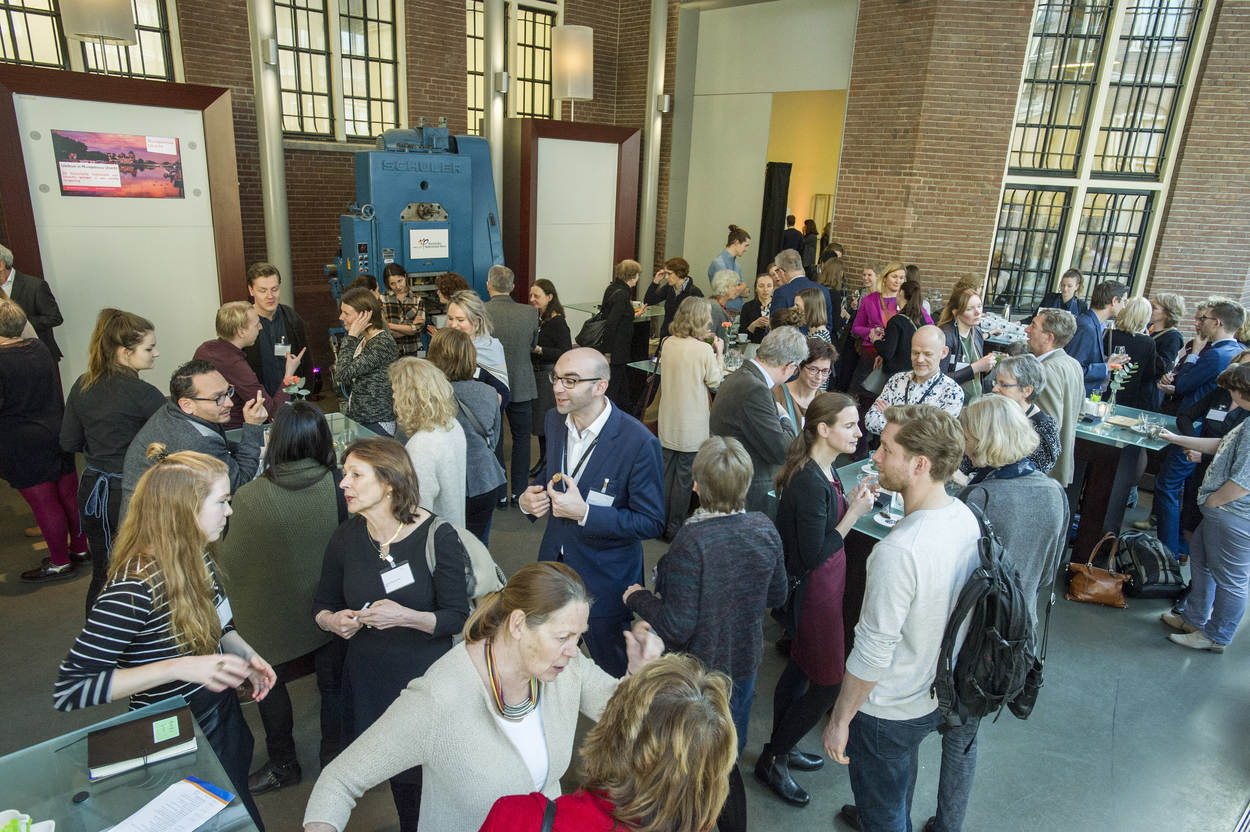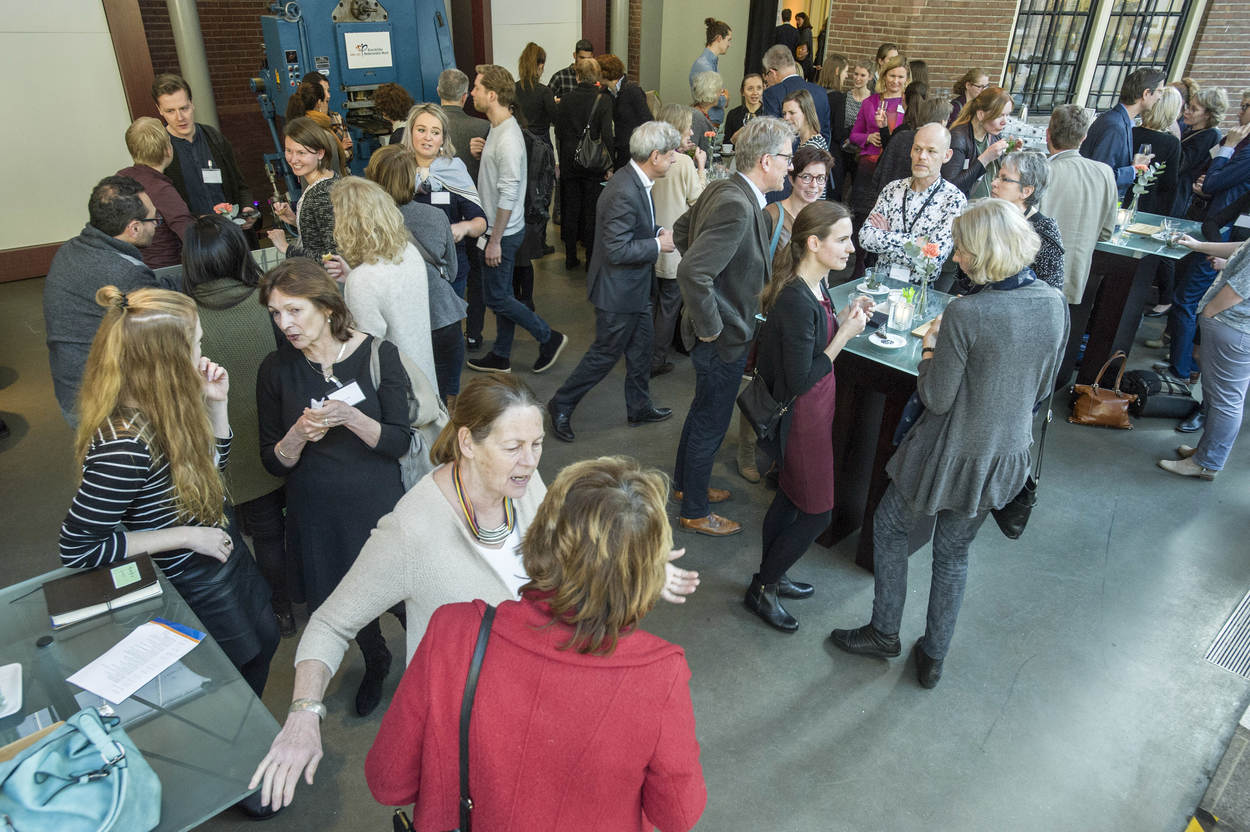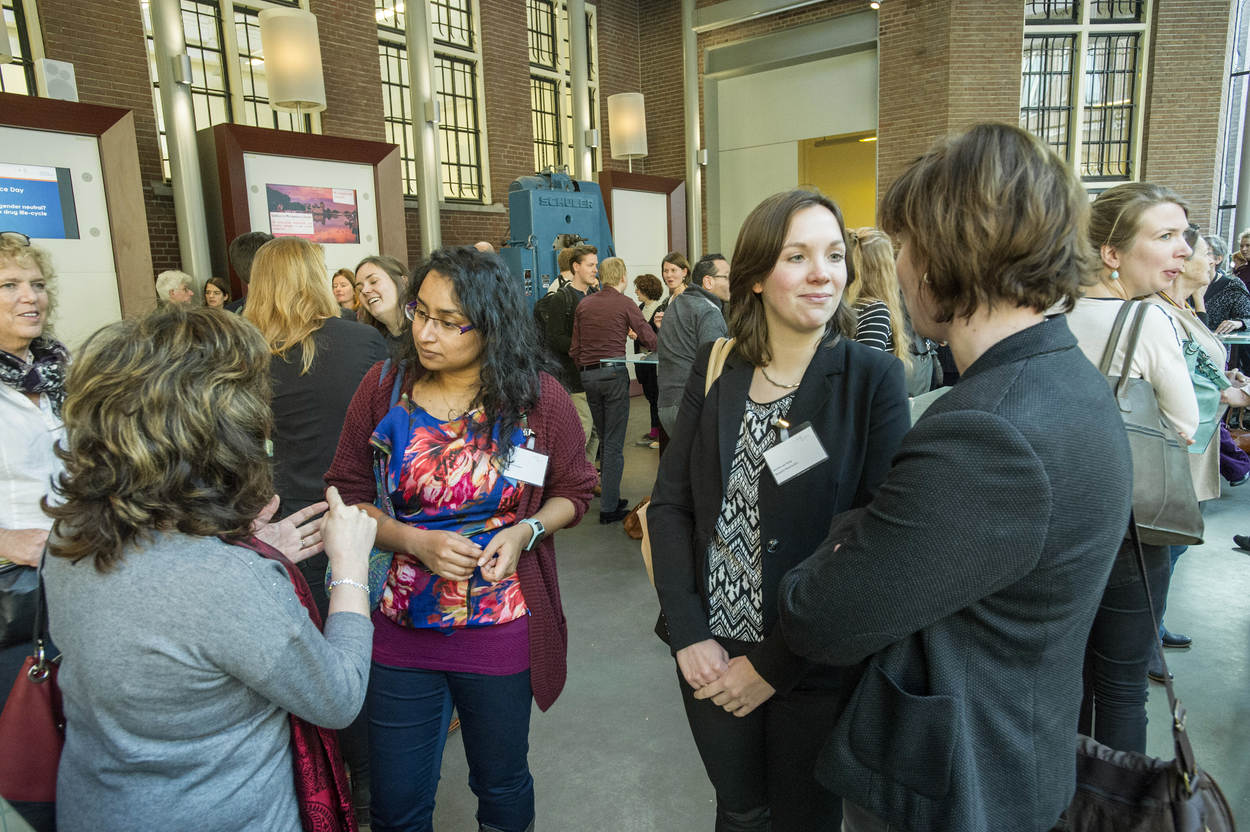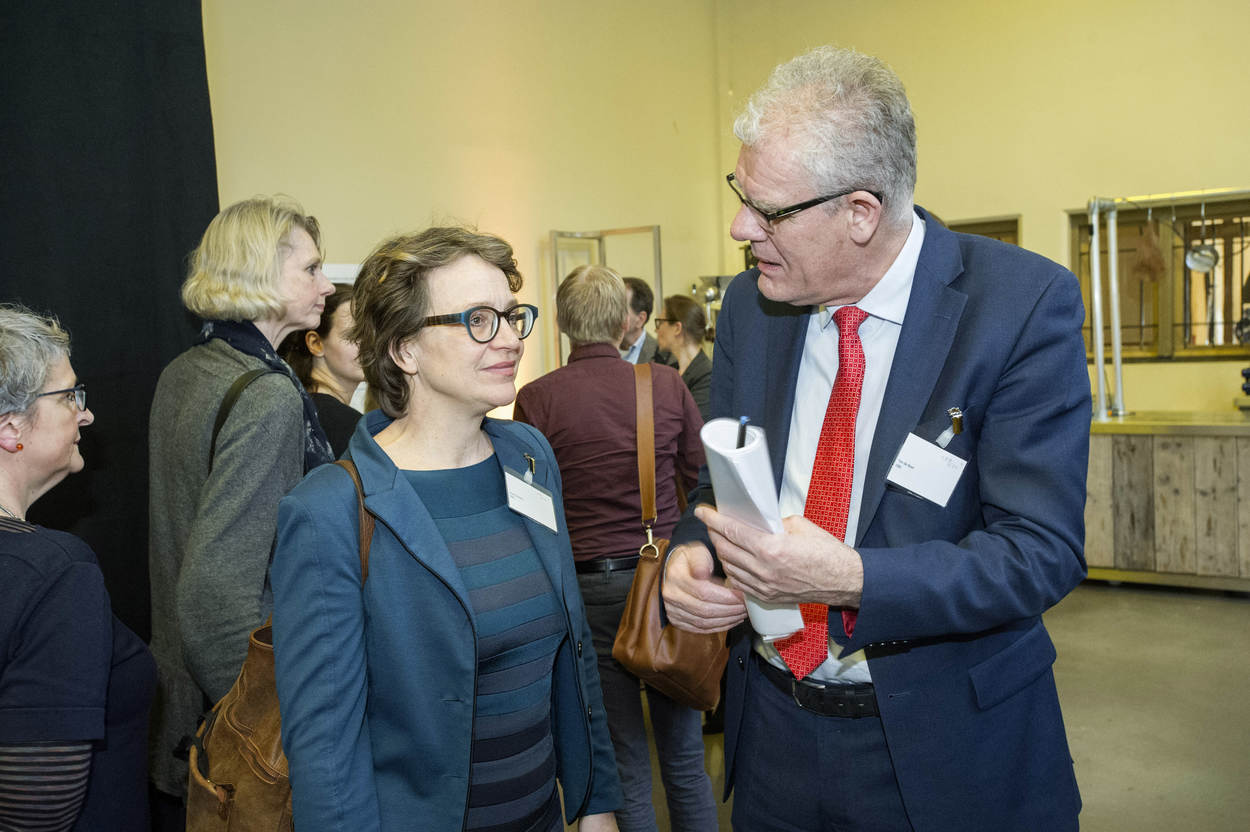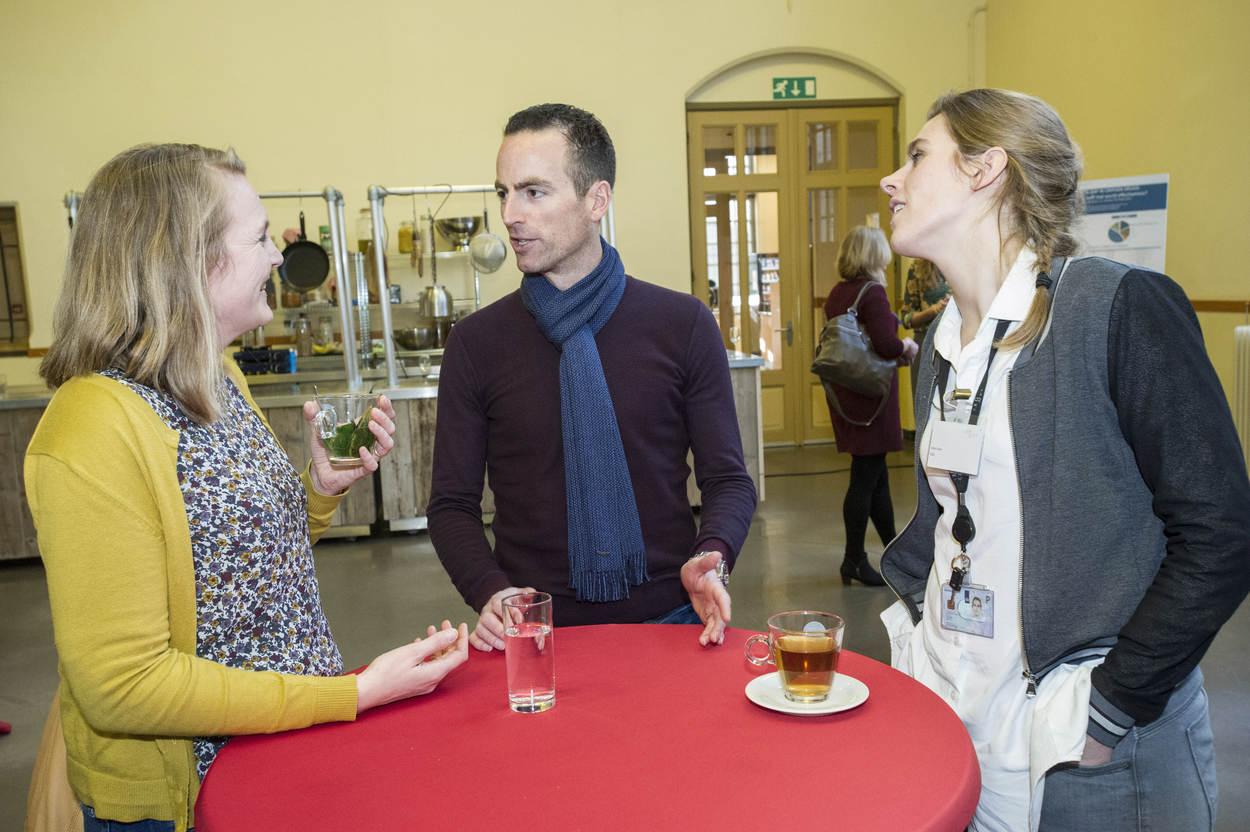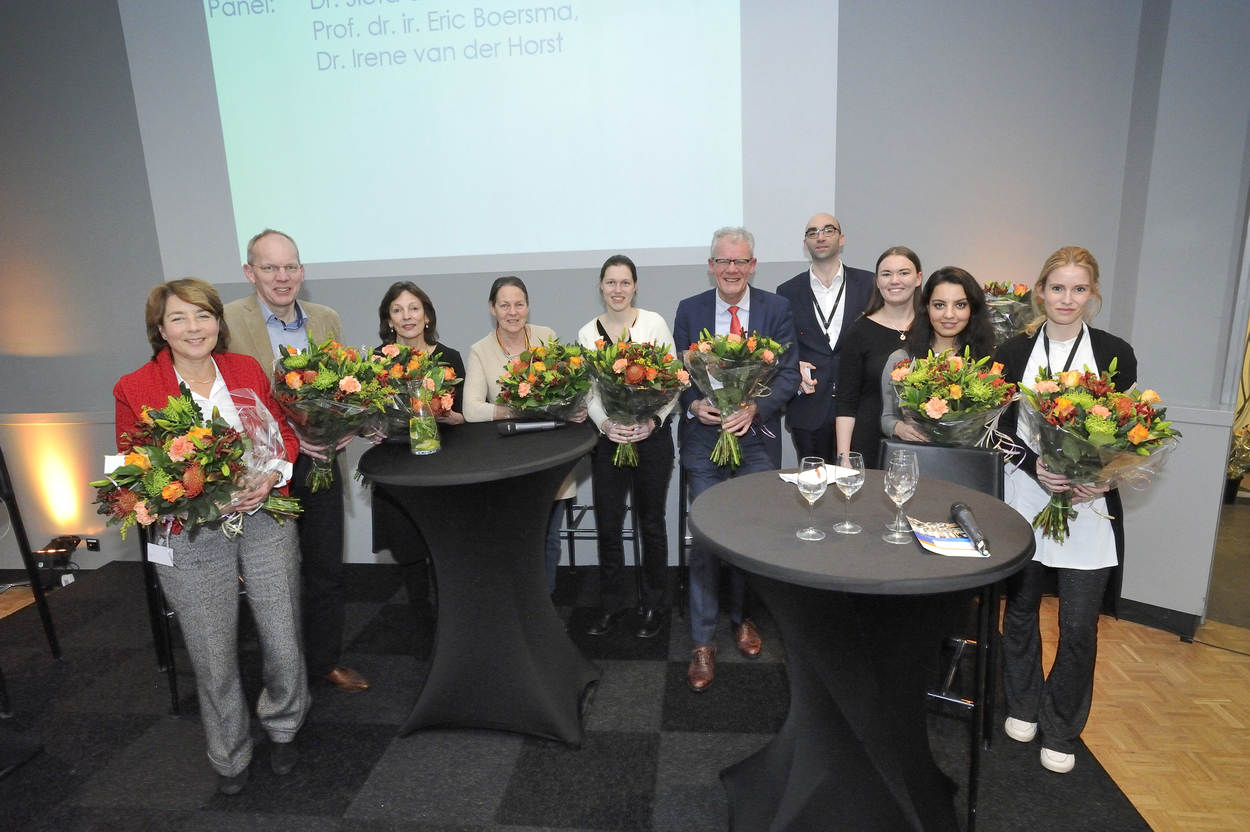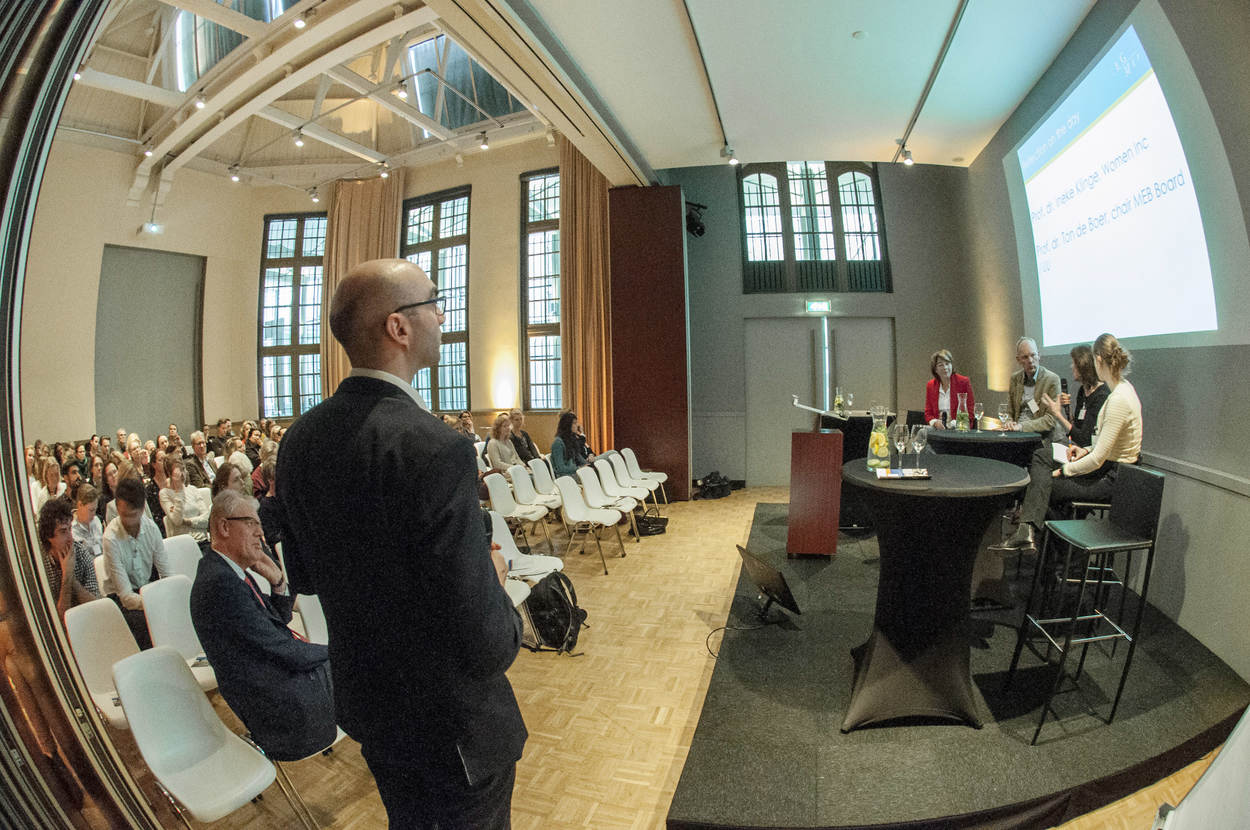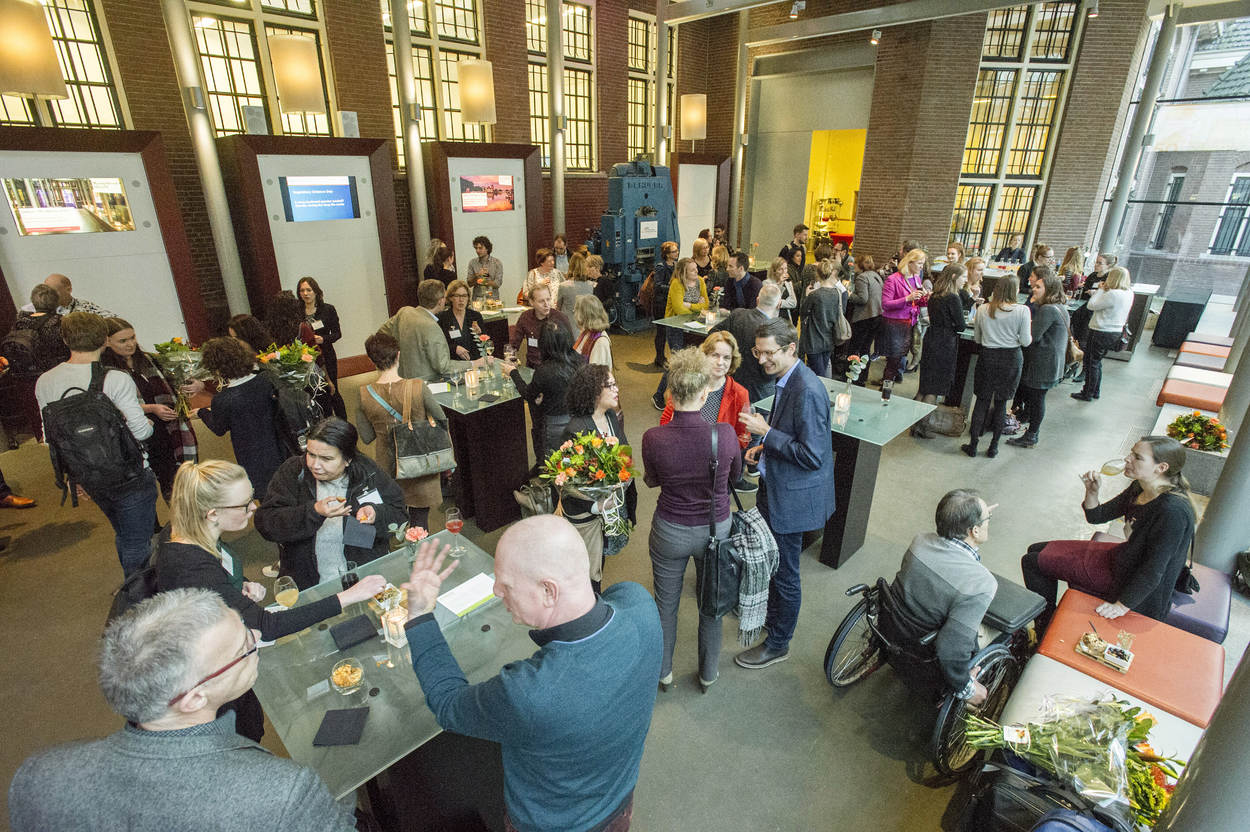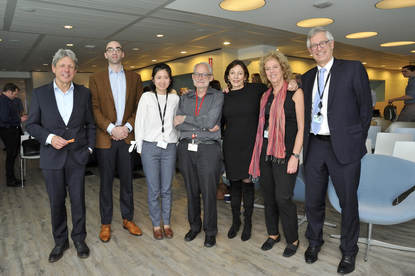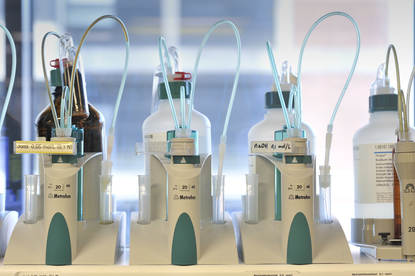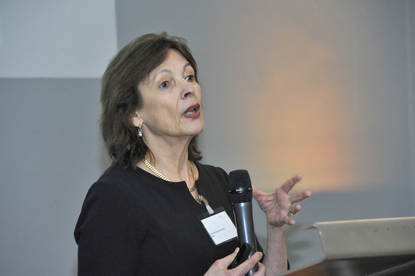
Is drug treatment gender neutral? Gender during the drug life-cycle
Are there differences between women and men when it comes to the effects of medicines? Sometimes there are small differences, but these are not so great that women have to be given a different dosage. These are the findings of a study by Dr Christine Gispen (MEB) into recent medicine authorisations. She also concludes that sufficient women participate in pharmaceutical research. In the case of some types of illnesses, such as hepatitis C and thrombosis, more women take part in clinical studies than men. More men were involved in medicine research for heart and blood vessel studies and schizophrenia. She asserts that it would be helpful for companies and regulatory authorities to be more aware of the possible different effects of medicines on men and women.
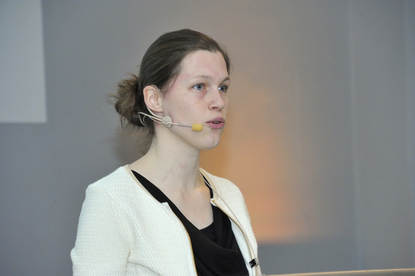
Reporting adverse reactions
Based on research into reporting adverse reactions, Dr Sieta de Vries (UMCG) concludes that the share of women who report spontaneous adverse reactions is higher than in the case of men. Women also report a larger number of types of complaints. Female patients also report more adverse reactions than men if they have been given a placebo, according to Gispen. Further research is needed to find the cause.

Genetic predisposition and age
Prof. Eric Boersma (Erasmus MC) asserts that, in the case of medicine research, it is more important to assess whether the group of subjects sufficiently corresponds to the group of patients for whom the medicine is intended, than to determine whether an equal number of men and women are participating. Age and genetic predisposition play a major role in diseases and may influence the effect of medicines. Boersma suggests that extra research into various effects of medicines on men and women should only be conducted if there are indications that the clinical picture for women is clearly different to that for men.

Retrospective analyses required
Certain rheumatic disorders and migraine are examples of illnesses which women suffer from more frequently than men. Research by Prof. Irene van der Horst-Bruinsma has shown that women respond less well than men to the medicines prescribed for some rheumatic disorders. This difference was discovered when she received individual patient details on a certain medicine from the company in question. She therefore believes that this retrospective analysis must be done for other medicines, for example using current medicine authorisation dossiers.
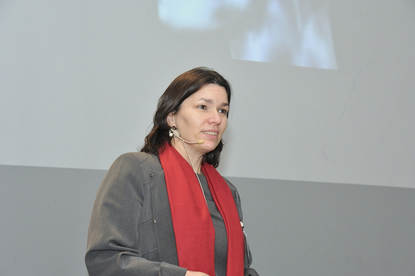
Additional research
Additional research into migraines could also be a good idea according to Dr Antoinette Maassen van den Brink (Erasmus MC). She claims that hormonal fluctuations and high blood pressure can have an effect on migraines. Women who suffer from migraines also have a higher risk of cardiovascular problems. She is looking for solutions by researching migraines in combination with women's state of health in the cardiovascular area and in terms of hormonal fluctuations.
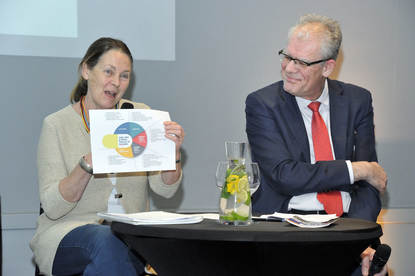
Reflection of the day
During the Science Day an interesting discussion was held with all stakeholders. In the 'Reflection of the day' Prof. Ineke Klinge referred, on behalf of Women Inc., to the research by Dr Sieta De Vries. Women Inc. is happy with the focus on women in pharmaceutical research. Klinge also pointed out that a great deal of attention is also being paid to gender differences at international level. According to MEB chairman Ton de Boer the presentations on this afternoon show that women are well represented in clinical pharmaceutical research and that there are no major differences in the effect of medicines. The next steps in the research into differences between men and women are to focus on differences in the pathophysiology of illnesses and on the different ways in which illnesses are experienced and expressed.
During the 7th MEB Science Day on 8 February 2018, the 120 participants were given five presentations on gender and pharmaceutical research. PhD students and candidates were given a platform from which to pitch their regulatory science research proposals. These research proposals will be published in the next edition of our Regulatory Science Magazine.
Below you can enjoy a photo impression of the MEB Science Day 2018.
